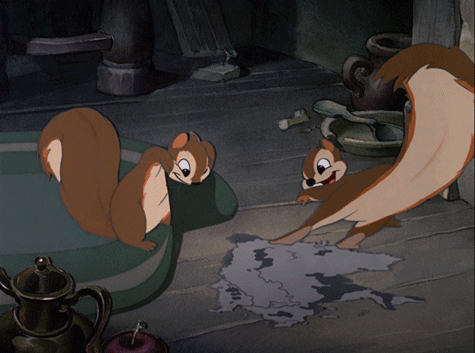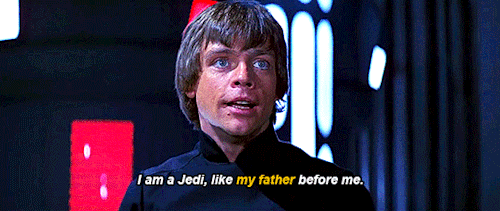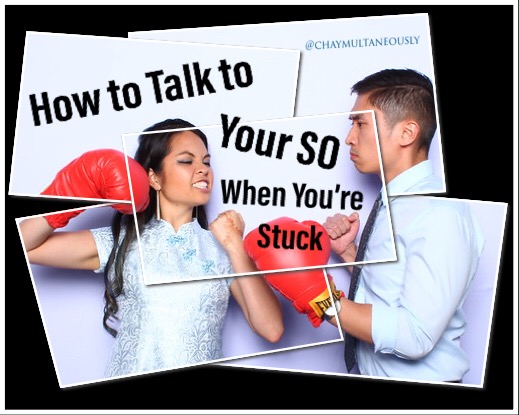pushing through a bad week
 |
| Photo by Jaanus Jagomägi on Unsplash |
So I've been having a terrible week from last week and today has not improved; but it did remind me of a concept I'm obsessed with and willing to write a bit about: the shadow.
Carl Jung is one of my favorite founding fathers of Psychology, and he worked closely with Freud at one point - and at one point they had a major falling out. Many of their ideas are outdated (and often sexist) but some of the core elements are still useful today.
He theorized that we, as humans, have these inner "drives" toward different archetypes. These archetypes are universal throughout humanity, and we are all drawn towards the ones more fitted to our personalities and this creates our behaviors, aka our choices.
One of the archetypes is called the Shadow.
He says this:
The shadow is a moral problem that challenges the whole ego-personality, for no one can become conscious of the shadow without considerable moral effort. To become conscious of it involves recognizing the dark aspects of the personality as present and real. This act is the essential condition for any kind of self-knowledge, and it therefore, as a rule, meets with considerable resistance.
Indeed, self-knowledge as a psychotherapeutic measure frequently requires much painstaking work extending over a long period.
(From Aion: Phenomenology of the Self published in The Portable Jung, edited by Joseph Campbell, Penguin Books, 1976, p. 145.)Like I've been saying, all emotional work is HARD work.
Getting to know your shadow is pretty much the hardest work that there is.
Three things you should know about it:
1) Your shadow is always a projection.
Like a real shadow, your psychological shadow needs to be shown by a reflection of "light" against you. For example, I'm taking on a new coaching position at work, leading a group of girls. You could say that a new challenge is like a "light" shining on my character.
As I begin my work with them, I find myself challenged in time management, organization, and self-perception. I want the girls to feel like I'm prepared, ready, and fun all at the same time. Often the shadow in my mind is repeating to me all the things I didn't do, pointing out the kids whose faces look bored - and I feel afraid, upset, hurt.
Running away from, denying, yelling at, punching, kicking, and screaming at your shadow are different ways of suppressing it. Fighting your shadow is like adding gasoline to a fire; it will only grow. We give it more power as we struggle in this way. Oftentimes, we all only learn how to put on more armor and keep fighting it... we don't learn how to do anything else.
What I like about the mindfulness movement is the concept of acceptance. Of just being.
I remember when I was younger that my parents would always tell me to stop crying. Perhaps it was too hard for them to watch me be sad, perhaps they were always told that themselves. But instead of not crying, I would just find times to cry alone. I got used to crying alone; I'm guessing many people feel the same way. And it was embarrassing to cry in front of others. Even now, at school, I try to give my kids some time to themselves if they're crying.
But I do notice a difference.
It's one thing to be crying for the sake of attention; it's another to be crying out of pure grief. And knowing your kids, you'll be able to see the difference. And when my kids are in grief, I sit with them instead of leaving them alone.
Sitting with your shadow takes a LOT of practice. It reminds you that you're ugly, and not ___ enough, and too ____. It makes you feel worse about yourself. But when you sit with it enough times and look it in the eye and tell yourself, "I am in pain and that is okay. I am enough." It really does start to fade - and you start to change the way you talk to others and yourself.
3) Your shadow is not (just) a bad guy.
What is especially interesting is the idea that the shadow contains not just destructive aspects of the personality, but also potent, creative, and powerful capabilities.
Your shadow is a necessary aspect of who you are.
I'm going to throw in a Star Wars reference because it's the exact reason why so many people's minds were blown when Luke discovers that Darth Vader is his father: we all distance ourselves so much from what we believe is evil, that to discover it is within us creates utter devastation.
When Luke accepts Darth Vader is his father, he grows even more powerful - and compassionate. Instead of trying to kill Vader like he was intending before, he reaches out to the man inside the monster, he fights more creatively, and he disables Vader's hatred and, consequently, his power over the choices he makes.
Resources:
https://academyofideas.com/2015/12/carl-jung-and-the-shadow-the-hidden-power-of-our-dark-side/






Comments
Post a Comment